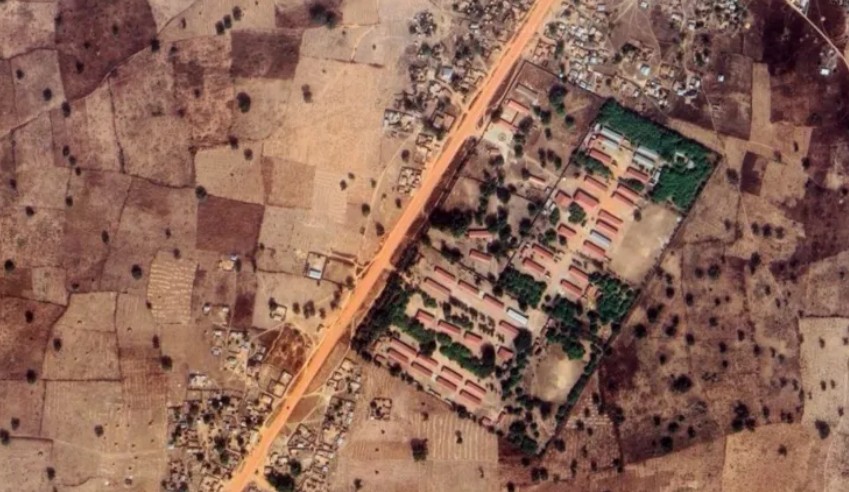
 The latest attack targeted St Mary's School in Papiri, Niger state. /GOOGLE
The latest attack targeted St Mary's School in Papiri, Niger state. /GOOGLEAn unknown number of pupils have been abducted by armed men from a Catholic school in central Nigeria, the second mass school kidnapping this week.
The latest attack targeted St Mary's School in Papiri, Niger state, where authorities had already ordered the temporary closure of all boarding schools due to rising security threats.
Details remain unclear but residents fear that close to 100 students and staff may have been taken away during the early-morning raid.
Nigeria has faced a renewed wave of attacks by armed groups in recent days, including the kidnapping on Monday of more than 20 schoolgirls, who the BBC has been told are Muslim, from a boarding school in nearby Kebbi state.
Police said armed men - locally known as bandits - stormed St Mary's School on Friday at about 02:00 local time (01:00 GMT) and abducted an unconfirmed number of students from their hostel.
Fear and uncertainty have gripped the area as families wait for news.
The authorities in Niger state said the school had disregarded an order to close all boarding facilities following intelligence warnings of a heightened risk of attacks.
"Regrettably, St Mary's School proceeded to reopen and resume academic activities without notifying or seeking clearance from the state government, thereby exposing pupils and the staff to avoidable risk," they said in a statement.
The school has not commented.
The police said that security agencies were "combing the forests with a view to rescue the abducted students".
The attack follows claims by US President Donald Trump that Christians are being persecuted in Nigeria, an allegation dismissed by the Nigerian government.
Earlier this month, Trump said he would send troops into Nigeria "guns a-blazing" if its government "continues to allow the killing of Christians".
The Nigerian government has pushed back on these claims, describing them as "a gross misrepresentation of reality".
An official said that "terrorists attack all who reject their murderous ideology - Muslims, Christians and those of no faith alike".
Nigeria is currently grappling multiple overlapping security crises.
The country's 220 million people are roughly evenly split between followers of the two religions, with Muslims in the majority in the north.
The kidnapping of people for ransom by criminal gangs, known locally as bandits, has become a major problem in many parts of the country.
In the north-east, jihadist groups have been battling the state for more than a decade. Organisations monitoring violence say most of the victims of these groups are Muslim because most attacks happen in the north.
In the centre of the country, there are also frequently deadly attacks between herders, who are mostly Muslim, on farmers, who are largely Christian. However, analysts say these are often motivated by competition for resources such as water or land, rather than religion.
On Tuesday, gunmen opened fire on a church in Eruku in the south-western Kwara state, killing two people and abducting 38 others as the service was being broadcast online.
Local media report that the kidnappers have demanded a ransom.
Two of the schoolgirls abducted on Monday in Maga, Kebbi state have managed to escape, while 23 are still missing. Two people were killed in that attack. They were both Muslim.
President Bola Tinubu this week postponed his foreign trips to address the rising wave of attacks across Africa's most populous country.













